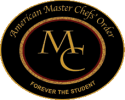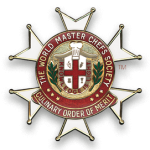In a busy commercial kitchen, it’s easy for dinnerware to get damaged. You’re moving fast, cooking and plating at warp speed, and it’s difficult to stop and consider dinnerware safety when diners are hungry and food needs to get to tables ASAP.
But, looking after your kitchen equipment can keep your diners safe and your kitchen costs lower, so protecting your dinnerware should be a regular part of your commercial kitchen maintenance checklist.
Below, we outline some general maintenance tasks restaurant owners can implement in commercial kitchens to keep their dinnerware safe, whole, and perfectly presentable for diners.
Why dinnerware safety should be on your kitchen maintenance checklist
There’s no way to sugarcoat it: cracked or chipped dinnerware is unsightly and drags down the standards of your kitchen.
Diners hate cracked dinnerware
For starters, diners absolutely abhor cracked and chipped dinnerware. Plates, cups, plate covers, bowls – no matter the dinnerware piece, if there’s a chip or a crack in sight, it tells your diners that you operate a low-quality kitchen with bargain-basement presentation standards.
Damaged dinnerware is unsafe
Not only do chipped plates and bowls look shabby, but they’re also a potential health hazard. Chips and cracks in your commercial dinnerware can harbor bacteria that could make your diners unwell. Bacterial outbreaks are a bad way for a restaurant kitchen to make headlines. Keep your kitchen tools—including dinnerware—in good working order to ensure their cleanliness and avoid safety violations.
Maintaining dinnerware avoids costly repairs and replacements
While maintaining your kitchen tools may take a few extra minutes, that time is far less costly than buying dinnerware replacements. Treat your dinnerware with the care it deserves so you can spend your kitchen equipment budget on more exciting items.
7 tips to add to your commercial kitchen maintenance checklist
Here we go – the 7 steps you can add to your commercial kitchen maintenance checklist on a daily or weekly basis.
Maintenance tip 1: Handle your dinnerware with care
The first step in maintaining your commercial dinnerware is to treat it a bit more carefully in general. In the hustle of a restaurant or club dining room, your servers focus more on serving and clearing than on handling their plates carefully.
But everyone in the kitchen, from cooks to servers to dishwashers, can learn to be more mindful of their tools and equipment.
Train your staff with specific instructions to handle dinnerware more carefully. For instance, if they’re stacking plates to bus a table, support the bottom plate and stack the plates to distribute the weight evenly. Placing too much weight on the rim of a plate or bowl may cause it to chip or crack.
Maintenance tip 2: Do a pre-wash rinse
Allowing your dinnerware to soak before washing removes particles of food and grease still stuck to the plates and bowls. This makes them cleaner when they go into the dishwasher.
Stuck food particles can sometimes create friction on plates and bowls in the dishwasher. Removing the food and grease before the dinnerware goes into the dishwasher eliminates that source of friction, preventing cracks or scratches.
Plus, without a drain clogged with grease particles, your dishwasher will work more efficiently, too. If your dishwasher is working properly, dishes will emerge sparkling, whole, and ready to dazzle the next diner.
Maintenance tip 3: Invest in quality dishwasher racks
Your commercial dishwasher is a workhorse, but high-quality dishwasher racks can help it handle your dinnerware more gently. Look for racks that leave plenty of room between items to ensure no dinnerware pieces rub against one another during the wash.
Encourage your dishwashing staff to load the dishwasher carefully to avoid friction between dinnerware pieces. When hot dishes emerge from the dishwasher, allow them to cool before removing and stacking them.
Maintenance tip 4: Store dinnerware properly
Thoughtful kitchen organization can protect your kitchen equipment. Always store your dinnerware in stackable storage solutions, and only stack identical pieces together.
Remove dinnerware storage areas from high-traffic areas and make them easy to reach. If your staff needs to reach or bend to grab a plate, they’re more likely to drop it or knock it off a shelf or prep table.
And install lots of shelves. With ample storage, your kitchen staff won’t need to overstack dinnerware. Cramming dinnerware into a storage area that’s too small will likely lead to cracks and chips.
Maintenance tip 5: Avoid temperature extremes
Keeping food at the perfect temperature in a bustling kitchen is a tall order, and it can be tempting to take shortcuts that move dinnerware from freezer to oven to table.
But ovens and freezers are hard on your dinnerware. Temperature extremes induce thermal shock, causing ceramic dinnerware to crack.
So, allow your dinnerware to cool before washing. Allow your dishes to come to room temperature when moving between warming ovens and freezers. And make sure dinnerware pieces do not touch one another when they’re hot.
Maintenance tip 6: Monitor your water quality
Hard water is tough on dinnerware. It can leave deposits of lime on your plates and bowls, reducing their shine and causing them to wear poorly over time.
If you have hard water, consider adding a water-softening system to your kitchen or water treatment products to your dishwasher.
Maintenance tip 7: Use the right cleaners and scrubbers
Whether cleaning dishes and plates that receive an almost hourly wash or scrubbing salt and pepper shakers for a weekly cleaning, the right cleaning tools can keep your kitchen equipment in better condition.
Save steel wool or harsh scrub brushes for heavy-duty cleaning jobs, and avoid using them in your day-to-day operations. Instead, choose soft sponges and brushes built for washing dinnerware and preserving its integrity.
While you’re at it, make sure your dishwashing soaps aren’t too hard or abrasive. Look for non-acidic detergents for your dishwasher. Acidic soaps take the shine off your dinnerware and cause it to wear more quickly. Plus, acidic detergents often react with certain metals, like aluminum and silver, causing them to discolor over time.
Bonus tip: Invest in high-quality dinnerware
Here’s a bonus tip for your commercial kitchen maintenance checklist: pay a bit extra for a dinnerware product that’s stronger and more durable than the cheaper version.
Spending more to get a better-quality product saves money in the long run. You’ll spend less money replacing broken or chipped pieces, and your dinnerware will still be in tip-top shape year after year.
Plus, your diners will notice the difference in the texture, weight, and presentation of superior dinnerware. Your dishes are the canvas on which you create your culinary masterpieces. If you start with a chintzy canvas, you’ll detract from the art of your presentation.
At Corby Hall, we’ve spent decades producing reliably strong and stunning dinnerware for private clubs, banqueting halls, and restaurants. Talk to our team about dinnerware that can meet the demands of a hard-working commercial kitchen.



